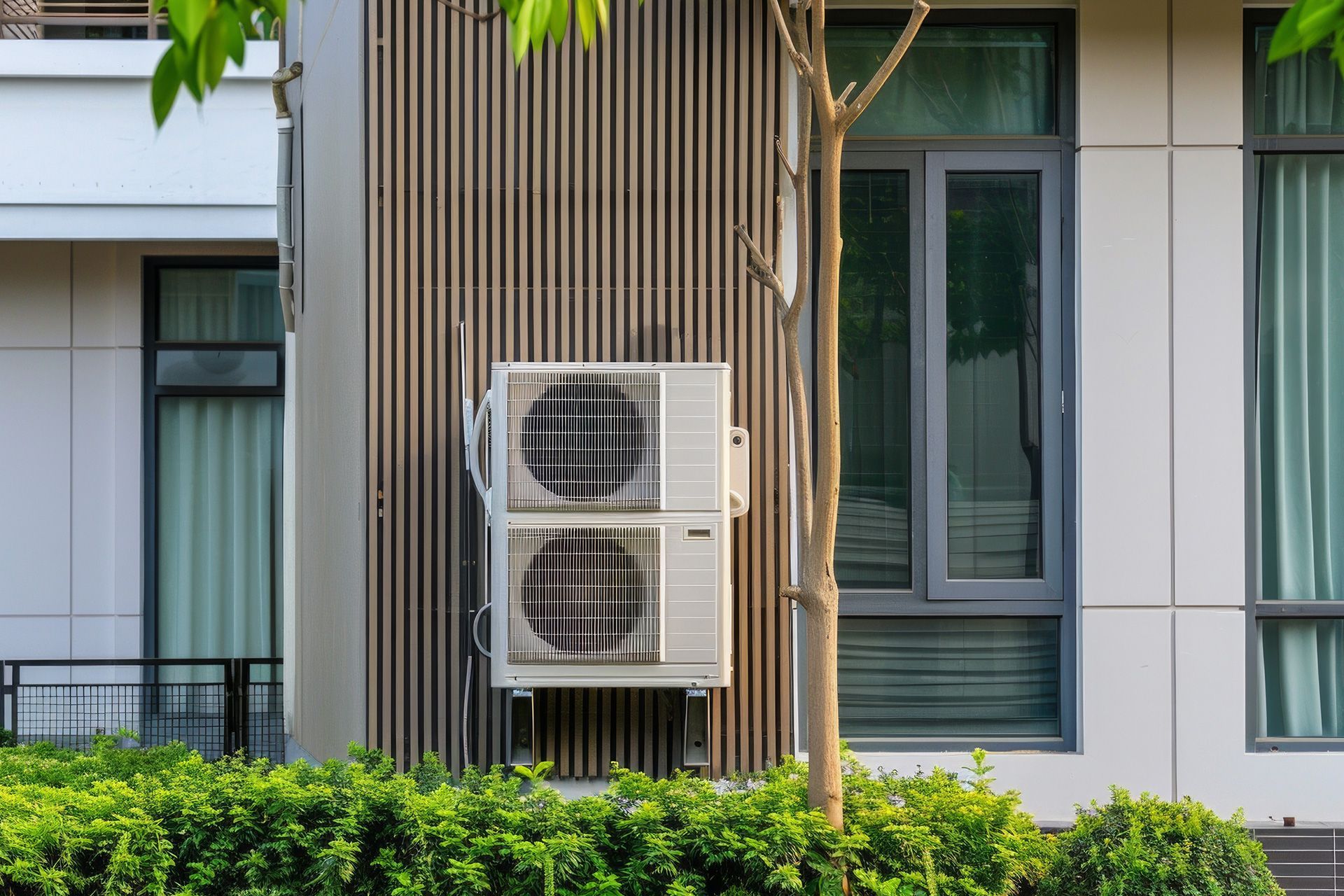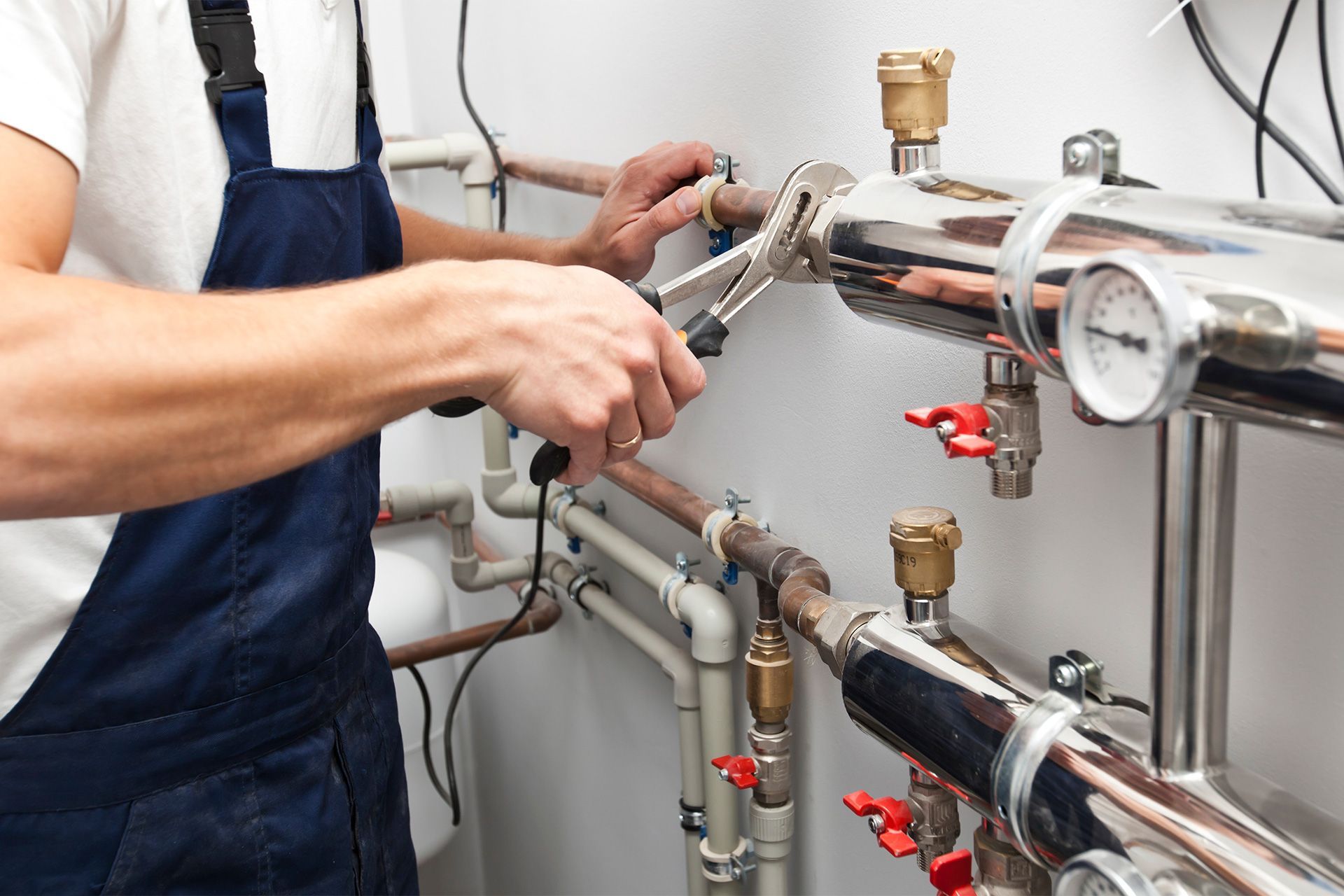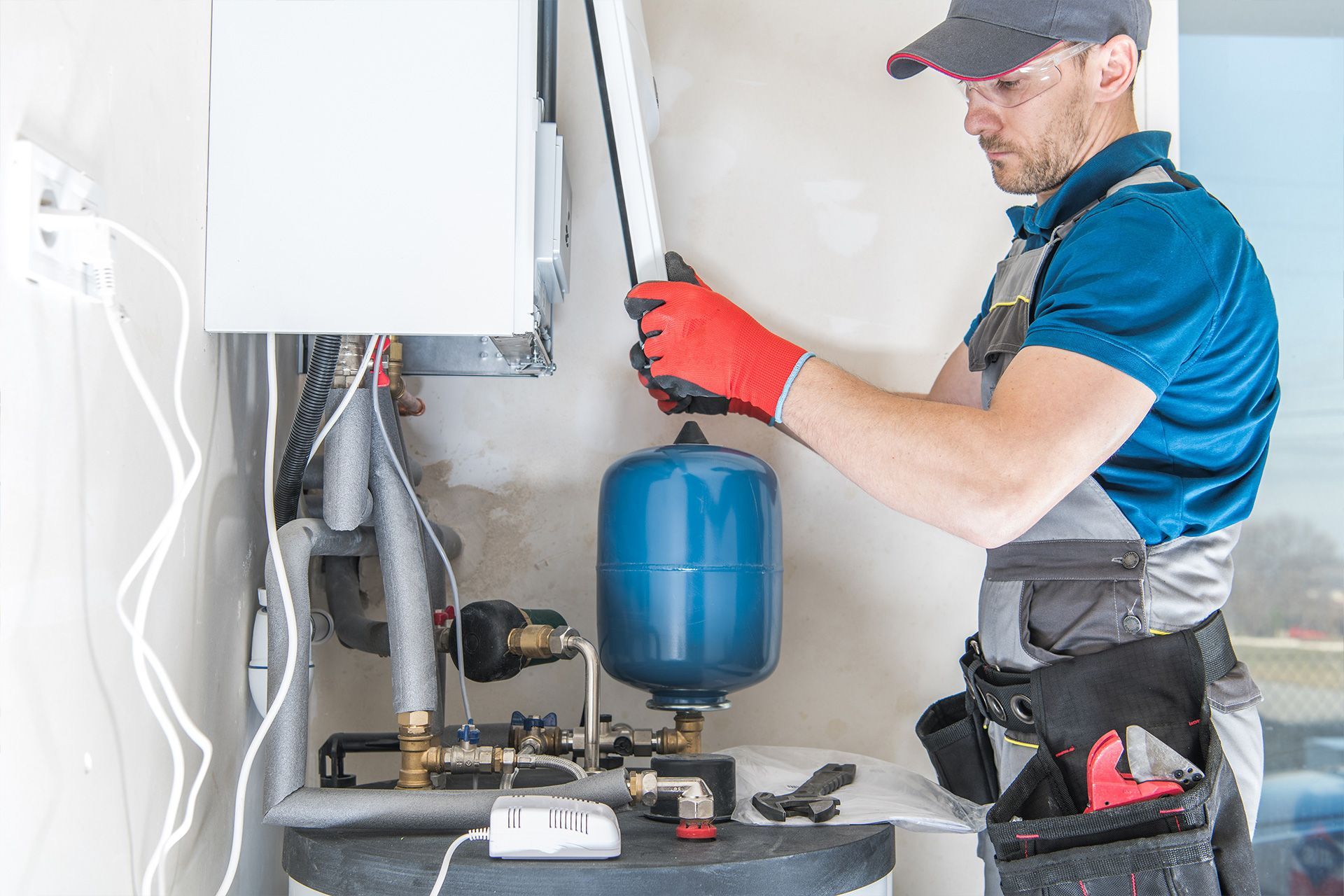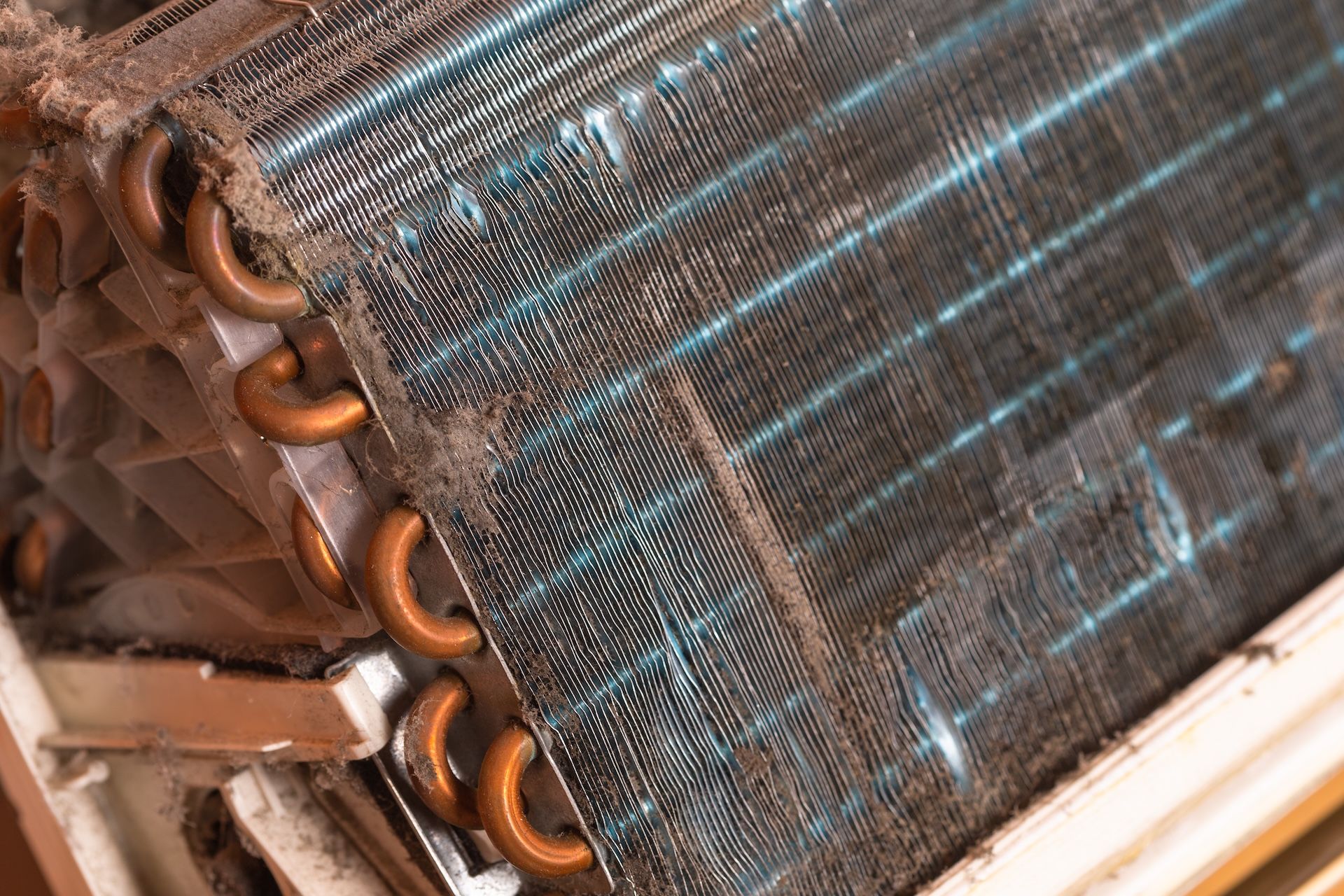Notice Your Air Conditioner Smells Funny? Here’s What It Means
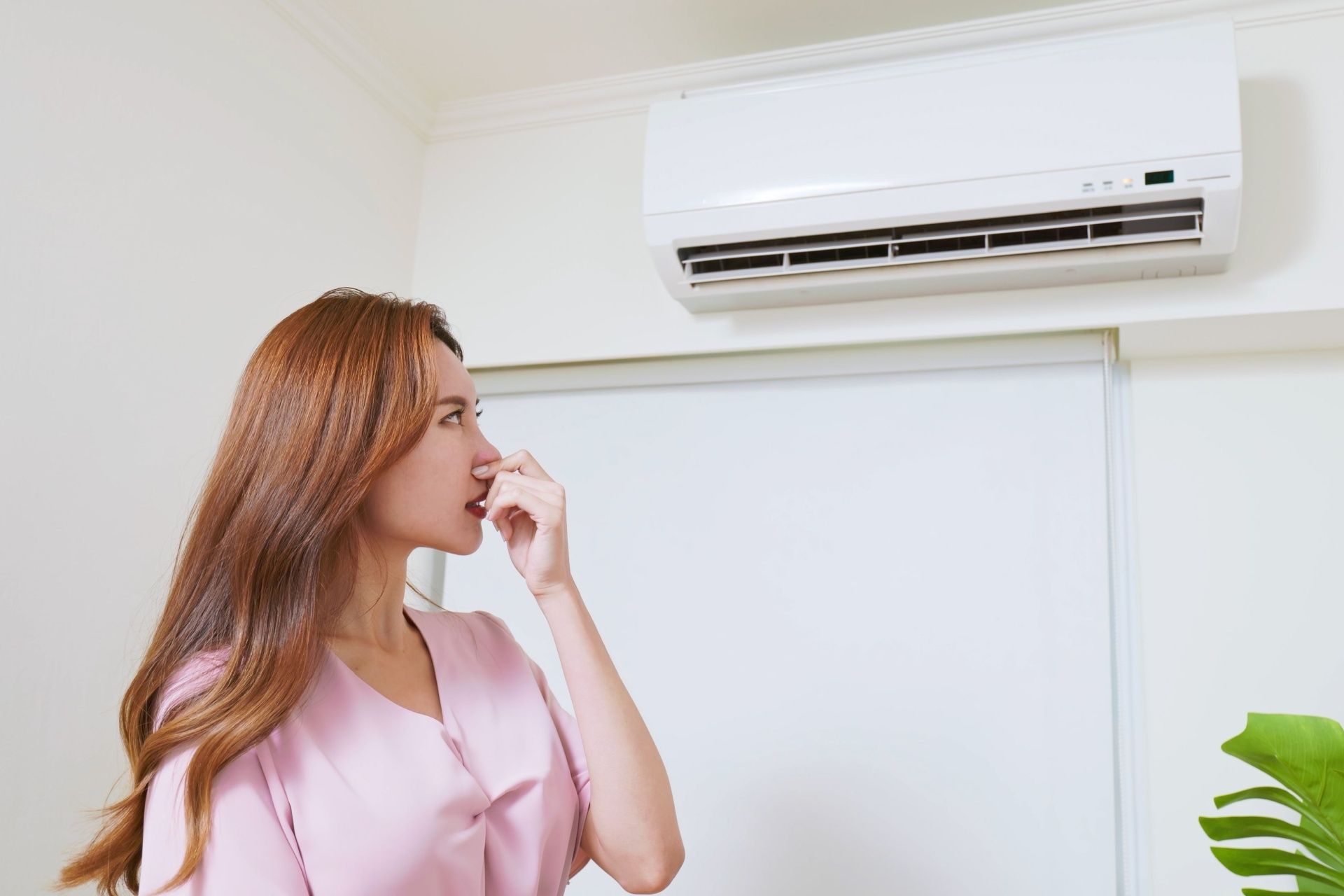
When your air conditioner is running, you expect cool, fresh air. But what happens if you suddenly notice a strange odor every time it kicks on? If your AC smells bad, it’s more than just uncomfortable; it could be a sign that something is wrong.
The good news is that many of these smells have clear causes and solutions. In this guide, we’ll break down the most common air conditioner odors, why they happen, and what you can do about them.
Why Does My AC Smell?
Your AC works by pulling warm air from your home, cooling it, and sending it back through the vents. Along the way, moisture, dust, and even bacteria can build up inside the system. Over time, this can cause odors. If you’ve been asking yourself, “Why does my AC smell?” you’re not alone. Many homeowners experience this issue, especially during the summer when their systems run constantly.
Common Air Conditioner Smells and What They Mean
Here are some of the most frequent AC odors, along with their likely causes:
1. Musty or Moldy Smell
If your AC smells bad and reminds you of damp clothes or a basement, mold or mildew may be growing inside your system. This often happens when moisture collects in the drain pan or ducts.
- Why it matters: Mold spores in the air can trigger allergies and breathing problems.
- Solution: Call an
HVAC professional for a deep cleaning and make sure your system is draining properly.
2. Burning Smell
A burning or smoky odor can be alarming. Sometimes it’s just dust burning off if you haven’t used your AC in a while. But if the smell continues, it could point to an electrical issue.
- Why it matters: Faulty wiring or overheating parts can be dangerous and lead to fire risks.
- Solution: Turn off the AC and call a technician right away.
3. Rotten Egg or Sulfur Smell
If your AC releases a rotten egg smell, it could be due to a gas leak near the unit. Natural gas is odorless, but utility companies add sulfur-like chemicals so leaks can be detected.
- Why it matters: A gas leak is a serious safety hazard.
- Solution: Leave your home immediately and contact your gas company. Do not turn your AC back on until it’s cleared.
4. Chemical or Sweet Smell
A sweet, chemical-like odor may mean refrigerant is leaking. Refrigerant is what cools the air in your system, but leaks can reduce efficiency and harm the environment.
- Why it matters: Exposure to refrigerant can be harmful, and low refrigerant levels will damage your AC over time.
- Solution: Contact an HVAC professional right away to check for leaks.
5. Sewage Smell
If your AC smells like sewage, it might not be the unit itself. Sometimes, a dried-out drain trap or backed-up sewer line can allow gases into your ductwork.
- Why it matters: Sewer gases can be harmful and should not be ignored.
- Solution: Have a plumber inspect your home’s drains and fix the issue.
6. Dead Animal Smell
Sometimes small animals like mice or birds can find their way into ducts and become trapped. When this happens, the odor is very strong and unpleasant.
- Why it matters: Aside from the smell, decomposing matter can spread bacteria and attract pests.
- Solution: A professional can remove the animal and clean the ducts to restore fresh airflow.
The Importance of AC Maintenance
Most AC odors are preventable with proper care. Regular AC maintenance keeps your system clean and working efficiently. Here’s what you can do:
- Change filters regularly: Dirty filters trap dust and odors. Replace them every 1–3 months.
- Schedule yearly tune-ups: Professional inspections can catch small issues before they become big problems.
- Keep drains clear: Make sure your condensate drain line isn’t clogged.
- Clean ducts as needed: If your home has persistent odors or dust, duct cleaning may help.
When you stay on top of maintenance, your system will last longer, use less energy, and keep your home smelling fresh.
When to Call a Professional
Not all AC smells are serious, but some require immediate attention. You should call an HVAC professional if:
- The smell is strong and doesn’t go away.
- You notice burning, sulfur, or chemical odors.
- Your system isn’t cooling properly.
- You suspect mold or mildew is growing inside.
Experts have the tools and knowledge to diagnose the problem quickly and safely.
How to Keep Your AC Smelling Fresh
- Run your fan: Running the fan occasionally helps circulate air and reduce moisture buildup.
- Use a dehumidifier: Excess humidity can intensify odors, so running a dehumidifier helps control moisture levels and reduce unpleasant smells.
- Clean around your outdoor unit: Keep grass, leaves, and debris away.
- Invest in air purifiers: These can help reduce odors and allergens in your home.
Final Thoughts
If your AC smells bad, don’t ignore it. Strange odors are often a warning sign that your system needs attention. Whether it’s mold, a refrigerant leak, or something more serious, understanding the cause helps you take the right steps. With regular AC maintenance, you can prevent most problems, protect your health, and enjoy fresh, cool air all summer long.
Call Old School Cooling today to schedule your AC maintenance and keep your home smelling fresh!
FAQs About Air Conditioner Smells
Why does my AC smell when I turn it on?
This usually happens because dust, mold, or moisture has built up inside your system. A professional cleaning can often fix the issue.
Is it normal for my AC to smell musty?
No. A musty smell usually means mold or mildew is present, which should be addressed quickly.
Can bad AC smells make me sick?
Yes. Breathing in mold spores, sewer gases, or refrigerant leaks can cause health issues. Always take unusual smells seriously.
How often should I get AC maintenance?
At least once a year. A spring or early summer check-up ensures your system is ready for hot weather.
Can I fix AC smells myself?
You can replace filters and clear debris, but strong or unusual odors should be checked by a professional.
Disclaimer: The information on this website and blog is for general informational purposes only and is not professional advice. We make no guarantees of accuracy or completeness. We disclaim all liability for errors, omissions, or reliance on this content. Always consult a qualified professional for specific guidance.

